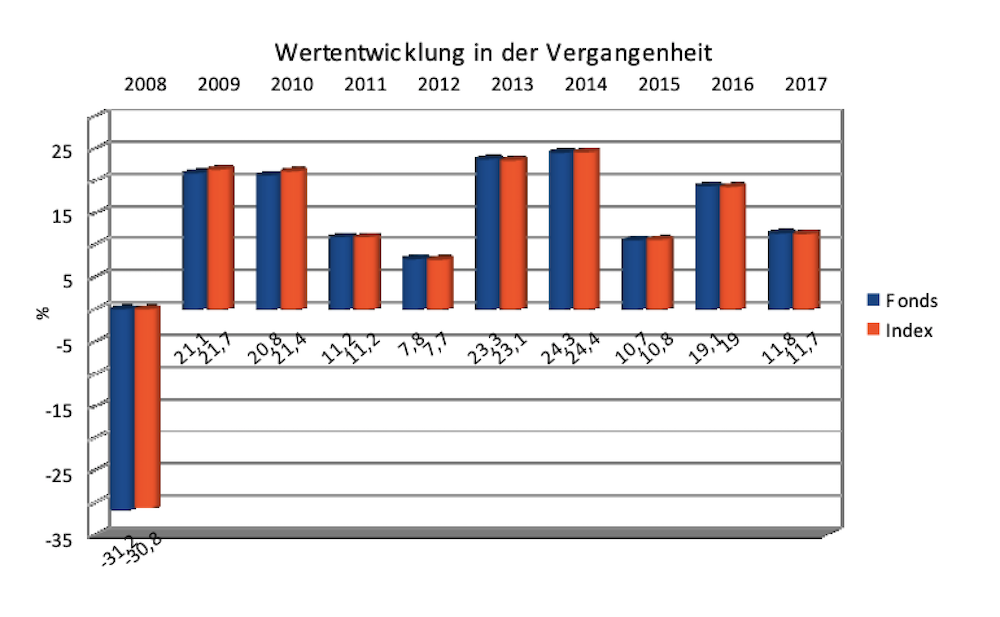Amundi MSCI All Country World UCITS ETF USD Acc: Understanding Net Asset Value (NAV)

Table of Contents
What is Net Asset Value (NAV) and Why is it Important?
Net Asset Value (NAV) represents the market value of an ETF's underlying assets minus its liabilities, divided by the number of outstanding shares. In simpler terms, it's the price per share of the ETF, reflecting the collective worth of all the securities it holds. For the Amundi MSCI All Country World UCITS ETF USD Acc, the NAV represents the value of a diversified portfolio of global equities.
Understanding NAV is paramount for several reasons:
- Tracking Performance and Returns: Monitoring NAV changes allows you to track your investment's performance over time and calculate your returns. A rising NAV indicates growth, while a falling NAV indicates a loss.
- Comparing ETF Values Over Time: By comparing the NAV on different dates, you can see the growth or decline in your investment's value.
- Making Informed Investment Decisions: NAV provides a clear picture of the ETF's current value, helping you make informed decisions about buying, selling, or holding.
- Understanding Potential Gains and Losses: Knowing the NAV helps you assess potential gains or losses based on market fluctuations.
Example: If an ETF has total assets of $10 million, liabilities of $100,000, and 1 million outstanding shares, its NAV is ($10,000,000 - $100,000) / 1,000,000 = $9.90 per share.
How is the Amundi MSCI All Country World UCITS ETF USD Acc NAV Calculated?
The Amundi MSCI All Country World UCITS ETF USD Acc NAV is calculated daily, reflecting the closing prices of the underlying assets within the ETF's portfolio. These assets are determined by the MSCI All Country World Index, a widely recognized benchmark for global equity markets. This index tracks the performance of large and mid-cap companies across developed and emerging markets worldwide.
Several factors influence the NAV calculation:
- MSCI All Country World Index Performance: The primary driver of the NAV is the overall performance of the MSCI All Country World Index. Positive index movement generally leads to a higher NAV, and vice versa.
- Currency Fluctuations (USD Acc): The "USD Acc" designation means the ETF's NAV is denominated in US dollars. Fluctuations in exchange rates between the US dollar and the currencies of the underlying assets will impact the NAV. A stronger dollar could lead to a lower NAV (in USD terms), and a weaker dollar could lead to a higher NAV.
- Daily Market Prices: The closing prices of all the constituent companies in the MSCI All Country World Index, as well as the currency exchange rates, are used to determine the end-of-day NAV.
Where to Find the Amundi MSCI All Country World UCITS ETF USD Acc NAV?
Finding the accurate and up-to-date NAV for the Amundi MSCI All Country World UCITS ETF USD Acc is crucial. Always rely on trustworthy sources:
- Amundi's Official Website: The most reliable source is the asset manager's official website, where you'll typically find real-time or end-of-day NAV information.
- Financial News Websites: Reputable financial news sources such as Bloomberg, Yahoo Finance, and Google Finance often provide real-time or delayed NAV quotes.
- Your Brokerage Account: Your brokerage account will usually display the current NAV of your holdings, including the Amundi MSCI All Country World UCITS ETF USD Acc.
Using verified sources is essential to avoid misinformation and ensure you're making decisions based on accurate data.
Factors Affecting the Amundi MSCI All Country World UCITS ETF USD Acc NAV
The NAV of the Amundi MSCI All Country World UCITS ETF USD Acc is subject to various market forces:
- Market Fluctuations: Global market movements significantly impact the ETF's NAV. Bull markets generally result in NAV increases, while bear markets lead to decreases.
- Global Economic Events: Major economic events, such as changes in interest rates, geopolitical instability, or significant economic announcements, can greatly influence the NAV.
- Currency Exchange Rates (USD Acc): As mentioned before, fluctuations in the US dollar against other currencies affect the USD-denominated NAV.
- Dividend Distributions: When the underlying companies in the index pay dividends, this impacts the NAV. While dividends initially increase the cash in the fund, the NAV typically drops slightly after the distribution, reflecting the payout to shareholders.
Conclusion: Mastering the Amundi MSCI All Country World UCITS ETF USD Acc NAV
Understanding the Net Asset Value (NAV) is critical for successfully investing in the Amundi MSCI All Country World UCITS ETF USD Acc. By consistently monitoring the NAV from reliable sources, you can track your investment's performance, make well-informed decisions, and accurately gauge the value of your holdings. Regularly checking the NAV, using the resources mentioned above, is vital for effective investment management. Continue learning about the Amundi MSCI All Country World UCITS ETF USD Acc and actively monitor its Net Asset Value for optimal portfolio management. For more information, visit the official Amundi website [insert link here].

Featured Posts
-
 Severe M56 Crash Causes Significant Traffic Disruption Live Updates
May 24, 2025
Severe M56 Crash Causes Significant Traffic Disruption Live Updates
May 24, 2025 -
 Alqfzt Alkbyrt Fy Mwshr Daks Atfaq Jmrky Amryky Syny Kmhrk Ryysy
May 24, 2025
Alqfzt Alkbyrt Fy Mwshr Daks Atfaq Jmrky Amryky Syny Kmhrk Ryysy
May 24, 2025 -
 Amundi Dow Jones Industrial Average Ucits Etf Understanding Net Asset Value Nav
May 24, 2025
Amundi Dow Jones Industrial Average Ucits Etf Understanding Net Asset Value Nav
May 24, 2025 -
 Porsche Elektromobiliu Ikrovimo Tinklo Pletra Europoje
May 24, 2025
Porsche Elektromobiliu Ikrovimo Tinklo Pletra Europoje
May 24, 2025 -
 Tisice Prepustenych Prehlad Najvaecsich Nemeckych Spolocnosti Ktore Rusia Pracovne Miesta
May 24, 2025
Tisice Prepustenych Prehlad Najvaecsich Nemeckych Spolocnosti Ktore Rusia Pracovne Miesta
May 24, 2025
Latest Posts
-
 Couple Goals Lady Gaga And Michael Polansky At Snl Afterparty
May 24, 2025
Couple Goals Lady Gaga And Michael Polansky At Snl Afterparty
May 24, 2025 -
 Zimmermann Showcases Amira Al Zuhair At Paris Fashion Week
May 24, 2025
Zimmermann Showcases Amira Al Zuhair At Paris Fashion Week
May 24, 2025 -
 Lady Gaga And Fiance Arrive At Snl Afterparty Photos
May 24, 2025
Lady Gaga And Fiance Arrive At Snl Afterparty Photos
May 24, 2025 -
 Paris Fashion Week Amira Al Zuhair Models For Zimmermann
May 24, 2025
Paris Fashion Week Amira Al Zuhair Models For Zimmermann
May 24, 2025 -
 Frances Juvenile Justice System Reform Proposals And Increased Punishment
May 24, 2025
Frances Juvenile Justice System Reform Proposals And Increased Punishment
May 24, 2025
